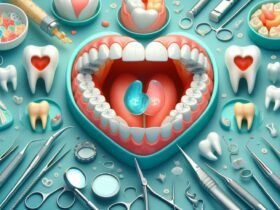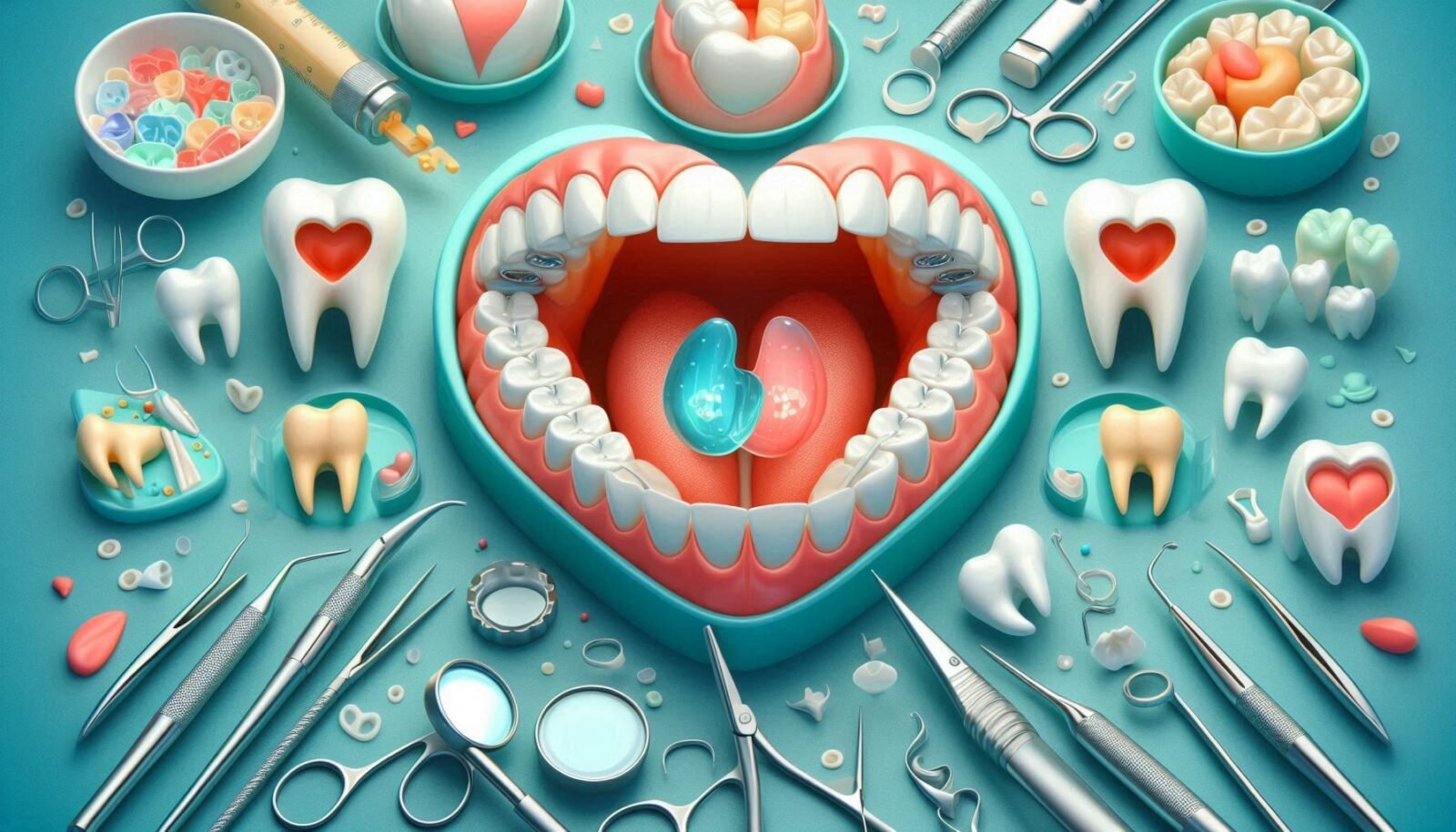Table of Contents
Dental flippers or flippers dental are a popular and affordable option for those who need a temporary solution for missing teeth. These lightweight, removable devices can quickly restore your smile and boost your confidence. In this guide, we’ll explore what dental flippers are, how they work, their benefits, and how to care for them.
Key Takeaways
Understanding Flippers in Dental Care


What Are Dental Flippers?
Dental flippers, also known as flipper teeth, are lightweight and removable partial dentures. They are primarily made from acrylic and temporarily replace one or more missing teeth. The name “flipper” comes from their ability to flip in and out of the mouth easily. Flippers dental are a quick and cost-effective alternative for people who have lost teeth due to injury, decay, or other reasons.
How Do Dental Flippers Work?
Dental flippers work by filling in the gaps left by missing teeth. They are custom-made to fit the patient’s mouth and are held in place by surrounding teeth. This helps maintain the appearance of a full set of teeth and prevents other teeth from shifting. The dentistry flipper is designed to be easy to wear and remove, making it a convenient option for many.
Who Can Benefit from Dental Flippers?
Many people can benefit from dental flippers, including those who have lost teeth due to accidents, decay, or other dental issues. They are especially useful for individuals who need a temporary solution while waiting for more permanent dental work. Dental flippers are also a good option for children who have lost teeth prematurely and are not yet candidates for permanent solutions.
Dental flippers are a practical and affordable option for temporary tooth replacement, helping to maintain appearance and oral function.
Advantages of Using Dental Flippers


Immediate Tooth Replacement
One of the biggest benefits of dental flippers is that they offer immediate tooth replacement. They can be made quickly, often within a few days, providing a fast solution for those who have lost teeth due to injury, decay, or other reasons. This quick turnaround helps maintain your smile and ensures proper function.
Cost-Effectiveness
Dental flippers are a cost-effective option compared to other dental prosthetics. They are relatively inexpensive, making them accessible for many people who need a temporary solution while waiting for more permanent dental work like implants or bridges.
Aesthetic Benefits
Dental flippers significantly improve the appearance of your smile by filling in gaps caused by missing teeth. This not only enhances your smile but also boosts your self-confidence. The flippers blend seamlessly with your natural teeth, making them a practical choice for maintaining your oral health and appearance.
Dental flippers are a versatile and practical temporary solution for maintaining your smile, ensuring proper function, and preserving oral health.
The Process of Getting Dental Flippers
Initial Consultation and Assessment
The journey to getting dental flippers starts with an initial consultation. During this visit, the dentist will evaluate your oral health and discuss if dental flippers are the right choice for you. This step is crucial to ensure that your mouth is in good condition to support the flipper.
Impression Taking and Customization
Once you and your dentist decide to proceed, the next step involves taking precise dental impressions. These impressions create a detailed mold of your teeth and gums. This mold is then used to design a custom flipper that matches the color, shape, and size of your natural teeth.
Fitting and Adjustments
After the flipper is crafted, you’ll return to the dentist for a fitting. The dentist will place the flipper in your mouth and make any necessary adjustments to ensure it fits comfortably and functions properly. This step is essential for achieving a good fit and avoiding discomfort.
The process of getting dental flippers is straightforward and involves careful planning and customization to ensure the best fit and function.
Caring for Your Dental Flippers


Daily Cleaning Routine
Maintaining your dental flipper is essential for both oral health and the longevity of the appliance. Like natural teeth, you need to brush your dental flipper twice daily. Follow these steps for a thorough cleaning:
- 1. Remove the flipper and rinse it under warm water to eliminate loose food particles.
- 2. Apply a denture cleaner to a soft-bristled toothbrush. Avoid regular toothpaste as it can be abrasive.
- 3. Gently brush all surfaces of the flipper, paying close attention to crevices where bacteria may accumulate.
- 4. Rinse the flipper again with warm water to remove any residue from the cleaning agent.
- 5. Soak the flipper in a denture-cleaning solution when not in use, following the product’s instructions.
Proper Storage Tips
Proper storage of your dental flipper when not in use is crucial to prevent damage and maintain its shape. Here are some tips:
Handling and Maintenance
Handling your dental flipper with care is essential to avoid damage. Here are some tips:
Proper care of your dental flipper not only ensures its longevity but also contributes to your overall oral health. Taking these steps helps ensure that the flipper, along with the rest of your mouth, stays clean and healthy.
Comparing Dental Flippers to Other Prosthetics
Dental Flippers vs. Dentures
Dental flippers are temporary prosthetic teeth made of acrylic, while partial dentures are more durable and made from metal or flexible plastic. Flippers are lightweight and easy to remove, making them a convenient option for short-term use. However, they are not as sturdy as dentures and may break more easily.
| Feature | Dental Flippers | Partial Dentures |
|---|---|---|
| Material | Acrylic | Metal or Flexible Plastic |
| Durability | Less Durable | More Durable |
| Weight | Lightweight | Heavier |
| Cost | Less Expensive | More Expensive |
| Usage Duration | Temporary | Long-term |
Dental Flippers vs. Implants
Dental implants are a permanent solution, surgically placed into the jawbone, while flippers are a temporary fix. Implants offer greater stability and longevity but come with a higher cost and require a more invasive procedure. Flippers, on the other hand, are non-invasive and can be made quickly.
Dental Flippers vs. Bridges
Dental bridges are fixed prosthetics that replace missing teeth by anchoring to adjacent teeth. Flippers are removable and do not require altering neighboring teeth. Bridges offer a more permanent solution but at a higher cost and with a more complex fitting process.
Flippers are a good temporary option while waiting for more permanent solutions like bridges or implants.
Common Issues and Solutions with Dental Flippers
Fit and Comfort Problems
Dental flippers can sometimes cause discomfort or irritation, especially when first used. This is often due to the acrylic material rubbing against the gums. To alleviate this, your dentist can make adjustments to improve the fit. If discomfort persists, it might be necessary to explore other options.
Maintenance Challenges
Maintaining dental flippers can be tricky. They need regular cleaning to prevent plaque buildup and should be removed at night. Poor hygiene can lead to bad breath or gum disease. Here are some tips to keep them clean:
Longevity and Durability
Flippers are not as durable as permanent dental prosthetics. They are made of acrylic, which can break if not handled carefully. This might mean more frequent replacements or repairs. To extend their lifespan, handle them gently and avoid biting into hard foods.
Remember, while flippers are a cost-effective and quick solution, they are generally meant for temporary use. For long-term dental health, consider discussing more permanent options with your dentist.
Long-Term Considerations and Alternatives


When thinking about long-term dental solutions, it’s important to weigh the pros and cons of dental flippers and consider other options that might be more suitable for your needs. Here are some key points to keep in mind:
When to Consider Permanent Solutions
Dental flippers are great for temporary use, but they might not be the best choice for everyone in the long run. If you need a more stable and lasting solution, you might want to look into other options like partial dentures or implants. These alternatives can offer better support and durability over time.
Alternatives to Dental Flippers
There are several alternatives to dental flippers that you might find more comfortable and effective:
Consultation and Decision-Making
Before making a decision, it’s crucial to consult with your dentist. They can help you understand the benefits and drawbacks of each option. A thorough evaluation will ensure you choose the best solution for your dental health and lifestyle.
Remember, the right choice for you will depend on various factors, including your dental health, budget, and personal preferences. Always seek professional advice to make an informed decision.
Conclusion
In conclusion, dental flippers are a practical and affordable solution for those needing temporary tooth replacements. They offer immediate improvements in appearance and confidence, making them a popular choice for many. However, it’s crucial to maintain good oral hygiene and handle flippers with care to ensure their longevity and effectiveness. Regular dental check-ups are also important to monitor the health of your gums and remaining teeth. By following these guidelines, you can enjoy the benefits of dental flippers while keeping your mouth healthy. Zara Dental in Houston, Texas, provides expert care and personalized treatment plans to help you achieve a confident smile with dental flippers.
Frequently Asked Questions
What exactly are dental flippers?
Dental flippers are lightweight, removable partial dentures made from acrylic. They are designed to temporarily replace one or more missing teeth and can be easily flipped in and out of the mouth.
Who can benefit from using dental flippers?
Anyone who has lost teeth due to injury, decay, or other reasons can benefit from dental flippers. They are especially useful for those seeking a temporary solution while waiting for a more permanent dental prosthetic.
How do I take care of my dental flippers?
To care for your dental flippers, clean them daily with a soft brush and non-abrasive cleaner. Handle them carefully to avoid damage and store them in a moist environment when not in use to prevent drying out and warping.
Are dental flippers expensive?
Dental flippers are generally more affordable than other dental prosthetics like implants or bridges. Their cost-effectiveness makes them a popular choice for temporary tooth replacement.
Can I eat and speak normally with dental flippers?
It may take some time to get used to eating and speaking with dental flippers. Start with soft foods and practice speaking to adjust. Most people adapt quickly and find them comfortable to use.
What should I do if my dental flipper feels uncomfortable?
If your dental flipper feels uncomfortable, schedule an appointment with your dentist. They can make adjustments to improve the fit and ensure your comfort.














Leave a Review